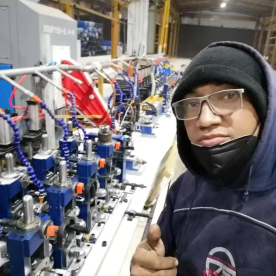****
Annealing is a crucial heat treatment process employed in various industries to achieve desired material properties. It involves heating metal or glass and then allowing it to cool gradually, which helps to relax internal stresses, improve ductility, and refine grain structure. One of the principal tools for this process is the annealing machine. Over the years, annealing machine applications in industry have evolved significantly, driven by technological advancements and the ever-increasing demand for high-quality materials. This article delves into the diverse applications of annealing machines in various sectors, highlighting their importance in enhancing material properties and production efficiencies.
Understanding Annealing Machines
An annealing machine primarily works by maintaining precise temperature control and allowing for gradual cooling. Various designs exist, including batch-type ovens for large quantities, continuous annealing lines for sustained production, and specialized units tailored to specific materials. Each machine type has its unique applications, depending on the requirements of the material being processed.
1. Metal Fabrication and Processing
One of the most significant applications of annealing machines is in the metal fabrication industry. Metals can become hard and brittle during processes like forging or welding. Annealing machines are used to soften these metals, making them easier to work with. For instance, steel components undergo annealing to enhance their machinability. In the automotive and aerospace sectors, where precision and reliability are paramount, annealing helps improve the toughness of components subjected to high-stress conditions.
2. Glass Production
Glass manufacturing is another industry where annealing machines are indispensable. After glassblowing or molding, the glass products experience internal stresses that must be relieved. Annealing ovens help to cool the glass steadily and uniformly, preventing breakage and ensuring the final products maintain their structural integrity. This process is crucial in the production of bottles, windows, and other glass items, as it directly impacts their durability and quality.
3. Electronics and Electrical Manufacturing

Exploring the Diverse Annealing Machine Applications in Industry: Enhancing Material Properties and Production Efficiency
In the electronics industry, annealing machines are pivotal in the production of various components, including silicon wafers and metal connectors. The annealing process in this context often aims to enhance electrical properties and improve the performance of semiconductors. For example, in the manufacturing of silicon chips, annealing helps in the activation of dopants that are essential for electronic properties, thereby ensuring optimal performance of the final product.
4. Wire and Cable Production
The wire and cable industry also greatly benefits from the applications of annealing machines. Annealed wire is known for its improved flexibility and ductility, which is essential for applications ranging from electrical wiring to the production of jewelry. The annealing process allows manufacturers to produce wires with the right balance between stiffness and flexibility, enabling them to meet specific design and application needs.
5. Chemical and Pharmaceutical Industries
In addition to the above sectors, annealing machines find applications in the chemical and pharmaceutical industries. For certain processes, like crystallization of pharmaceutical compounds, controlled annealing can aid in achieving the desired crystal structure, which can significantly affect solubility and bioavailability. Moreover, the annealing of plastics and polymers helps in relieving stress, thereby enhancing their mechanical properties and thermal stability.

Exploring the Diverse Annealing Machine Applications in Industry: Enhancing Material Properties and Production Efficiency

Exploring the Diverse Annealing Machine Applications in Industry: Enhancing Material Properties and Production Efficiency
6. Advanced Materials and Research
As technology advances, the applications of annealing machines are expanding into more advanced materials, including composites and nanomaterials. Researchers use annealing machines to explore new material properties, experiment with different cooling rates, and better understand the effects of temperature on microstructural changes. This is particularly relevant in sectors such as aerospace, where weight reduction and strength optimization are critical concerns.
Conclusion
The applications of annealing machines in industry are diverse and vital for achieving high-quality materials with desirable properties. From metal fabrication and glass production to electronics and advanced materials research, these machines play an essential role in enhancing production efficiencies and ensuring product reliability. As industries continue to evolve and seek better methods for material processing, the importance of annealing machines will only grow, highlighting their critical role in modern manufacturing and research. Emphasizing their versatility and efficiency positions them as valuable assets in various industrial applications worldwide.Induction heating equipment



